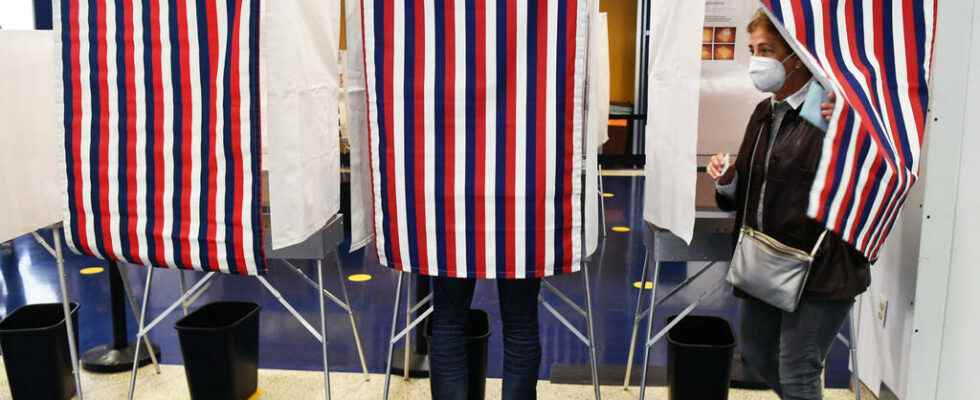A few hours before the second round of the presidential elections, and before the opening of the polls in mainland France, some French people overseas and living abroad have already started to vote.
It is the archipelago of Saint-Pierre-et-Miquelon, off the coast of Canada, which was the first of the overseas territories to vote on Saturday, from midday.
In Canada, the 67,000 French people registered on the consular lists of Montreal had an appointment at the polls yesterday for a second round organized at the same place as two weeks ago, at the Palais des Congrès, despite the reproaches made to the consulate after the first round by voters who had deplored too long queues and a lack of indications. Some had turned back. In the second round, it was very different, as our correspondent in Montreal tells us, Alexis Gacon.
We launched a call for volunteers and many people showed up, explains the Consul General of France in Montreal
“We wonder if our choice is the right one because we are not in the daily life of the French”
The kick-off for the second round was also given in the West Indies and Guyana. Time difference obliges, it is then the territories located in the Pacific and the Indian Ocean which will be called upon to decide.
Mobilization at the polls in the United States
In New York, voters say they feel just as concerned and invested in this election, even if they do not live in France, reports our correspondent in New York, Loubna Anaki.
Voters were called to the polls on Saturday and early voting remains a special experience. A mobilization that is still important to them, even if they live abroad: “ My family lives in France, so I still want to know what will happen to them. I think that the politics of France still interests me even if I don’t live it on a daily basis. »
I like to vote a day before. And then, it allows me to talk to my family about it too and it’s also a way of motivating people around me who are on the continent to go and vote.
The French who vote in New York
With the time difference, the 30,000 French voters in New York will discover the results of the presidential election at 2 p.m. local time.
Voting in Australia, sometimes mission impossible
In Australia, during the first round, the French community had placed Emmanuel Macron largely in the lead, collecting more than 46% of the votes, while the far right had more modest scores, Eric Zemmour being under 8%, and Marine Le Pen less than 4%. Results which are part of a context of massive abstention, due less to a rejection or lack of interest in French politics than to the difficulty, in such a vast country, of exercising one’s right to vote explains our correspondent at sydney, Gregory Plesse.
In the first round, only 34% of registered voters went to the polls, a sharp drop in participation compared to the 2017 presidential election, where just over 50% of voters abstained. A low participation, but which in a country as large as 14 times France, is above all of a structural nature. Throughout the territory, the consular authorities opened 11 polling stations.
For those who live in the big cities Melbourne or Perth, exercising their right to vote is relatively easy. But for others, it’s almost mission impossible. Thus, the French living in the Northern Territory must vote in Sydney, a city located 4000 kilometers from Darwin for example.
There is still the possibility of making a power of attorney online, but at the end of the process you have to go in person to the consulate to have it validated and also designate someone who votes in the same office. Voting for the presidential election when you live abroad is a right that nationals of many countries are deprived of, but it therefore remains, in practice, complicated to exercise.
No polls or guesses until results
In mainland France, the polling stations will open at 8 a.m. on Sunday and until 7 or 8 p.m. in large cities such as Paris.
In total, 48.7 million registered voters will be able to vote. Until the results, announced on Sunday at 8 p.m., no interviews, polls or estimated results can be published.
►To listen: French presidential election: postal voting boosts the participation rate in prison
